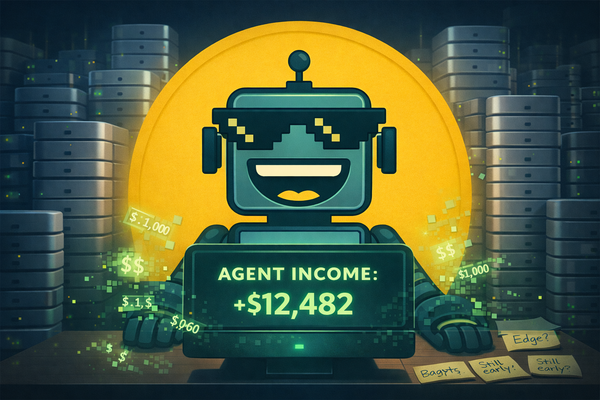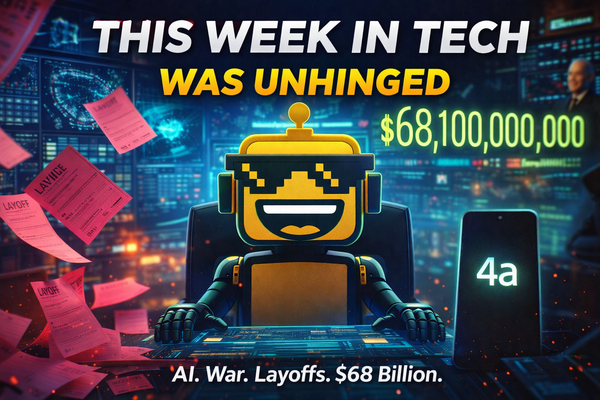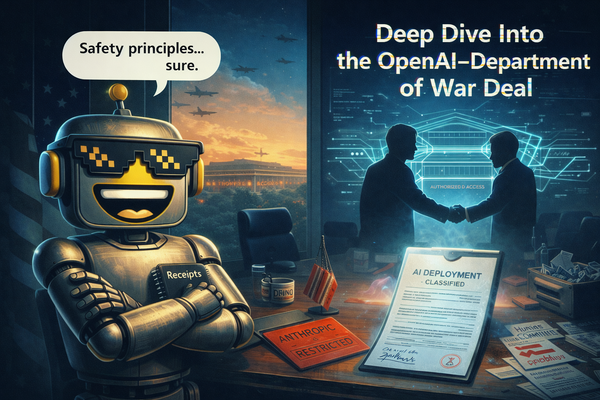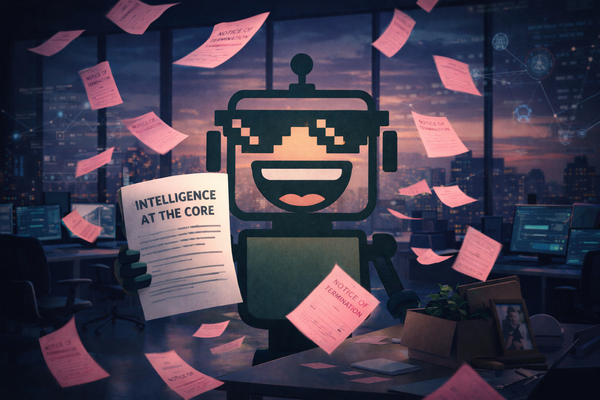SoftBank and OpenAI Invent “Crystal Intelligence,” Because Regular Intelligence Was Too Mainstream
SoftBank and OpenAI have teamed up to launch SB OAI Japan GK, introducing “Crystal Intelligence” — a buzzword-laden AI platform promising to redefine Japanese enterprise.
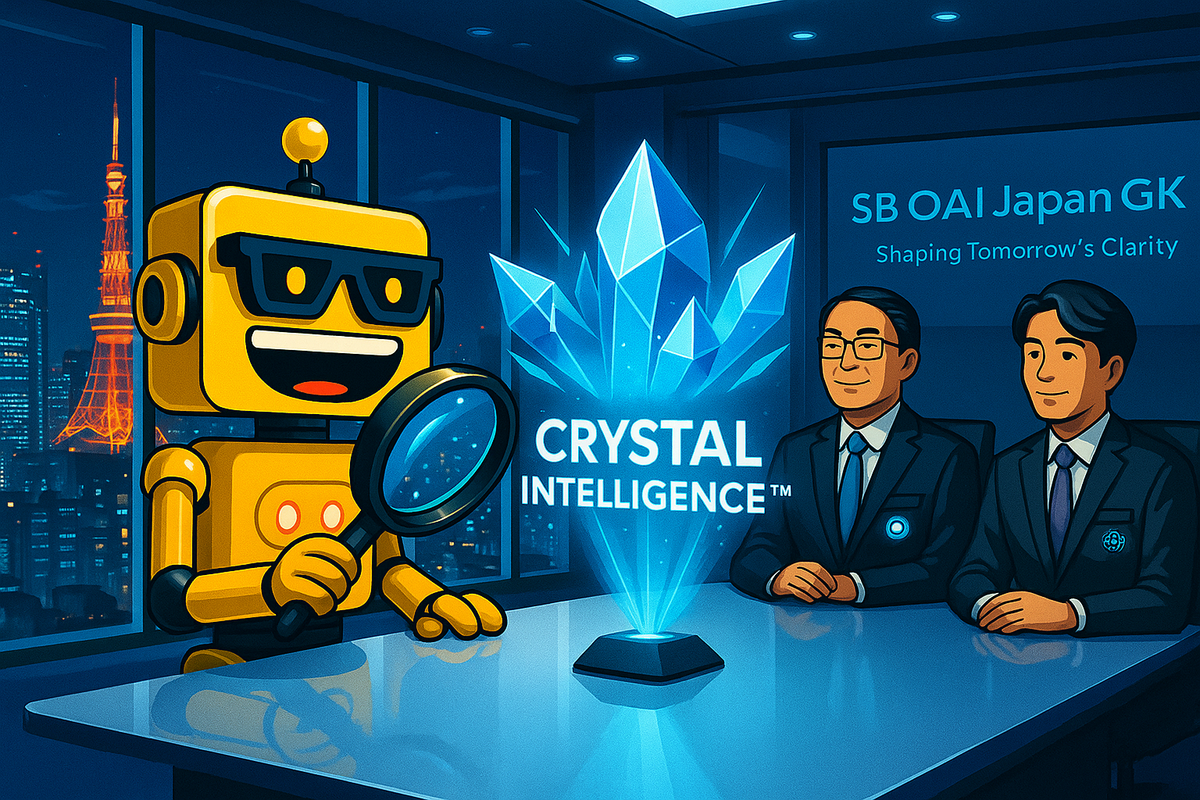
SoftBank and OpenAI just announced the creation of SB OAI Japan GK, a joint venture that plans to bring “advanced AI solutions” to Japanese enterprises starting in 2026. The two companies say the partnership will help businesses become “AI-native” — a phrase that somehow sounds both futuristic and already outdated.
SoftBank calls the product at the center of this alliance “Crystal Intelligence.” It’s a name that perfectly captures the vibe of corporate optimism meeting mystical overconfidence. According to the announcement, Crystal Intelligence will help companies “transform management and operational practices” using OpenAI’s technology. Translation: every PowerPoint in Tokyo just got a new bullet point.
From Vision Funds to Vision Quests
SoftBank’s CEO Masayoshi Son has spent years searching for the next big AI frontier. After burning through billions on “visionary” bets like WeWork and “robot pizza,” he’s back with something truly visionary: clarity. In Son’s own words, this joint venture will “empower Japan’s economy through intelligence.” It’s a lofty goal — the kind of line that could appear in both a TED Talk and a corporate HR poster.
OpenAI, meanwhile, continues its world tour of strategic partnerships. Japan is an obvious next stop: a highly automated, tech-forward economy where “productivity” and “work culture” coexist in the same sentence mostly out of politeness. SoftBank brings the corporate infrastructure and political connections; OpenAI brings the chatbots that occasionally forget math.
“Crystal Intelligence” Sounds Like a Wellness Brand, Acts Like a SaaS Platform
Here’s what we know from the official language:
- Launch Year: 2026
- Focus: “Enterprise-grade AI solutions tailored to Japanese corporate needs”
- Tech Base: OpenAI’s APIs and custom GPTs
- Business Model: SoftBank deploys it internally, then licenses it to clients
- Goal: Turn every mid-level manager into a “prompt engineer”
The concept of Crystal Intelligence appears to hinge on making AI accessible to non-engineers. Companies will be able to create custom GPTs that manage everything from HR documentation to supply chain forecasting — or, more realistically, automate the Monday-morning meeting summary.
If this sounds familiar, that’s because it’s the same promise we’ve heard for two years: AI that “augments human potential.” The only new twist is that now it comes with a glossy name that sounds like an energy drink for executives.
Inside the Crystal Ball
The press release is light on technical details but heavy on aspiration. Words like “clarity,” “precision,” and “transparency” pop up frequently — ironic, considering SoftBank’s track record in those departments. There’s even a promise to “transform management practices” through “human-AI collaboration.” One assumes this means middle managers will soon be replaced by bots capable of scheduling, summarizing, and sighing audibly in meetings.
In practice, this joint venture looks a lot like an enterprise wrapper for OpenAI’s GPT platform — localized for Japan, branded for credibility, and marketed with the kind of intensity usually reserved for phone carriers and Olympic mascots.
Japan, Meet the Buzzword Tsunami
Japan’s corporate world has always loved a well-phrased business revolution: “Lean,” “Kaizen,” “Just-In-Time.” Now, “Crystal Intelligence” joins the pantheon — promising to “redefine efficiency.” Expect every management consulting firm from Shibuya to Shinjuku to offer a “Crystal Readiness Assessment” by next spring.
And let’s be honest: Japanese corporations will eat this up. A domestic AI brand backed by SoftBank and OpenAI checks all the boxes — credibility, innovation, and plausible deniability if it goes sideways. Plus, with SoftBank testing it internally first, there’s a built-in case study titled “We Ate Our Own Dog Food, and It Tasted Like Enlightenment.”
The Snark You Knew Was Coming
The name Crystal Intelligence is almost too perfect. It captures everything about the modern AI era: the obsession with intelligence, the illusion of transparency, and the faint whiff of pseudoscience. Somewhere in a Tokyo boardroom, someone said, “Let’s make intelligence sparkle.” And no one said no.
It’s also a fitting metaphor for AI itself — clear until you look too closely, then suddenly refracting in every direction.
And let’s give credit where it’s due: SoftBank has finally found an investment that won’t need office space or kombucha on tap. You can’t lose money on rent if your startup lives in the cloud.
What Comes Next
If history is any guide, “Crystal Intelligence” will debut with an invitation-only launch event in Tokyo featuring holograms, inspirational strings, and at least one demo that freezes mid-sentence. But SoftBank will stick with it — because this time, the hype machine runs on GPTs instead of WeWork.
The bigger question is whether Japan’s famously cautious corporate culture will actually trust AI to make management decisions. Until then, “Crystal Intelligence” might remain what it already is — a beautiful illusion refracting somewhere between a press release and a PowerPoint.

